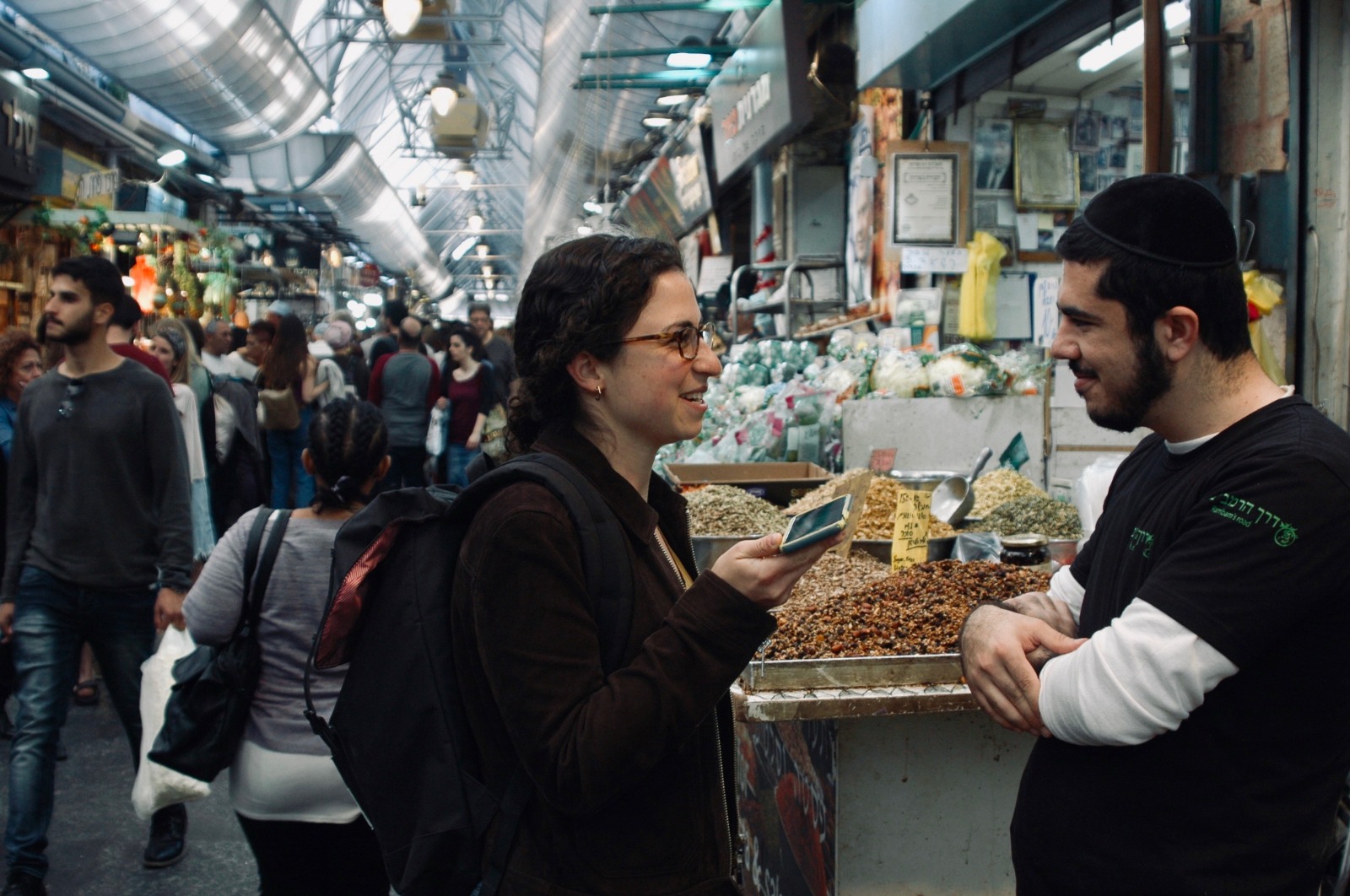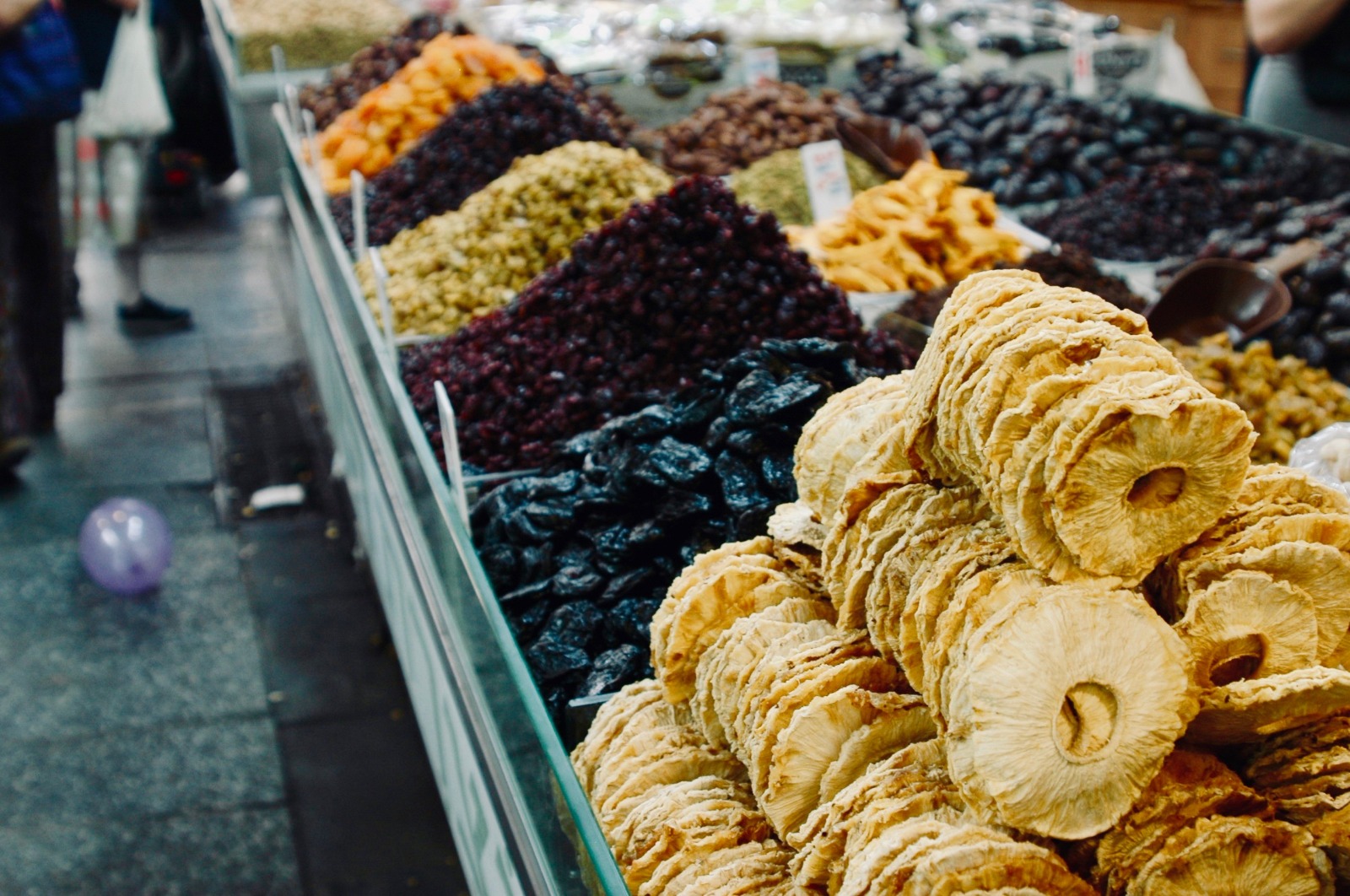‘The best of Jerusalem:’ sights and sounds of the Shuk
April 12, 2019
 Courtesy of Rebecca Franklin
Courtesy of Rebecca FranklinIt’s easy to tell who the locals are at the Machane Yehuda Market. Jerusalemites gesture emphatically and bicker loudly with vendors. They insist on only the freshest. They know what’s in season and which stalls have access to the best produce. They know exactly when to come on Thursday afternoon or Friday morning to make sure they get the best quality food for Shabbat, while still snagging a couple of coveted just-before-closing deals. Most only come on Thursdays, picking up produce for the upcoming week. Some loyalists go to the same stalls every time, and others scope out the scene each week, looking for the new best buy.
The rest of us—the visitors, the newcomers, the clueless—walk around the Shuk (“market” in Hebrew) with a sort of dazed, mesmerized look on our faces. By the time a vendor tells us a price, we understand the rapid Hebrew and convert the Shekels to our home currency, he has already sold us the “freshest strawberries in the State of Israel” and “the best deal on pistachios in the Shuk,” in addition to the “homemade spice mix that will change our lives forever,” which we actually requested.
We soak it all in: the heaps of spices, the mounds of dried fruits and nuts, the neat stacks of fresh veggies and colorful pastries. We deflect heckling vendors, dodge the trolleys of the grandmotherly, expert shoppers and sidestep lagging children. When the bustle becomes too much, we duck under one of the storefronts, sitting down for a beer and a chance to breathe.
If you’re grabbing your beer at around 8 p.m., you’ll watch a massive transformation. Metal storefront shops roll down to reveal elaborate stretches of graffiti. Bartenders set out tables and chairs where produce stands used to be. They prepare for the night, waiting for people from all corners of Jerusalem and beyond to flow in steadily, until it’s impossible to get from one shop to another.
 Courtesy of Rebecca Franklin
Courtesy of Rebecca FranklinDuring one of my first weeks here, I sat with a friend who gave me the lay of the land. She propped up her legs on our table and pointed to different clumps of people.
“See, you’ve got the army boys over there. Anyone with a buzz cut is hopping on a bus to go back to base early Sunday morning, and you won’t see them back here till two weeks from now,” she said, while gesturing at a couple of men who were clearly relishing the freedom of a weekend home.
Then, there are the bars that have received the highest Kosher ratings. In those establishments, black hats and long skirts reign, as the ultra-orthodox drink their rabbinate-approved beers. Right next to those bars is the hippy-mystical-alternative Israeli scene, where long-haired, pierced, secular folk dance on tables, avoiding the mainstream and younger crowds in the center of the Shuk.
“And, over there, do you see the skinny guys with the Adidas pants and the kippot?” She explained to me that the Yeshiva (or Jewish Seminary) boys travel in packs. They’re 18 and from America and clear out at 11:30 p.m. sharp to make their midnight curfews. All of the invisible boundaries of Jerusalem exist in the Shuk as well; sometimes they blur as the night progresses, but people generally stick to their own.
Of course, there are other Shuks in Israel: Tel Aviv’s Carmel Market, Jaffa’s Flea Market, the Old City Arab Souk. All have a similar model: street-facing stalls, yelling salesmen, wandering shoppers and sensory overflow that puts American supermarkets to shame. But when I interviewed people, they all agreed that Machane Yehuda was indeed The Shuk. Even a loyal Tel Avivian family ceded: “Sure, I love Shuk HaCarmel, but believe me, it’s not the same.” She gestured wildly as her son and husband nodded along. “Nothing like Machane Yehuda! Nothing!”
Machane Yehuda dates back to the late nineteenth century, when three businessmen founded the market, naming it after one of their brothers, Yehuda. Local peasants brought their produce to an empty lot. The Shuk’s central location allowed it to morph into an organized market fairly quickly, but Ottoman rulers did not invest in or develop any infrastructure, so vendors were responsible for managing their own facilities.
Come the British mandate, Jerusalem’s first governor recognized the centrality of the Shuk to Jerusalem daily life and found a city planner, Charles Robert Ashby, to formally design and build the infrastructure necessary to maintain a sustainable market. Ashby’s plans were too expensive, and even after years of planning for sewage, lighting, running water and proper garbage disposal, the Shuk stayed in its dilapidated, fairly unhygienic state.
It took a while to standardize maintenance of the Shuk. Etz Chaim, a local Yeshiva, took on managing, maintaining and renting out a row of shops in order to fund their religious studies. The British government oversaw other stalls, which were rented out to merchants. Eventually, frustrated with high taxes and health inspection regulations, the merchants established a new market down the street. Finally, the Machane Yehuda Management team, a group that manages the Shuk even today, formed through appointed merchants’ collaboration with various other Jerusalem representatives.
I’ve been grocery shopping here for about three months now, and the Shuk remains as mysterious and thrilling as it was in January. Filled with infinite corners, characters and colors, it seems impossible to ever really know the Shuk. When I interviewed Shuk-goers about their experiences here, veteran store-owners and first-time Shuk-goers alike agreed that there’s nothing quite like Machane Yehuda.

Comments
Before submitting a comment, please review our comment policy. Some key points from the policy: